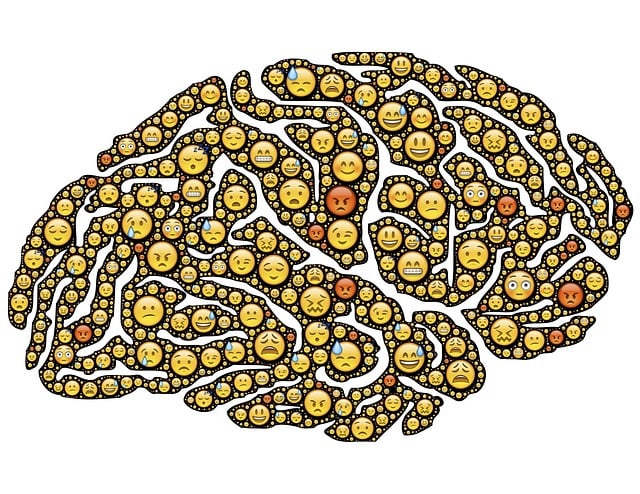Westminster offers specialized Bipolar Disorder Therapy, combining individual therapy, data analysis, and advanced techniques like machine learning and natural language processing. This comprehensive approach aims to predict episodes, personalize treatments, assess self-care, and improve patient care through precise interventions tailored to individual needs. Rigorous data preprocessing ensures accurate insights, enabling researchers to develop evidence-based interventions, enhance therapeutic outcomes, and promote mental health awareness while addressing ethical considerations for the future of bipolar disorder treatment in Westminster.
- Understanding Mental Health Data: Collection and Sources
- Preprocessing and Cleaning Data for Accurate Analysis
- Advanced Techniques in Mental Health Data Analysis
- Interpreting Findings: Implications for Westminster Bipolar Disorder Therapy
- Challenges, Ethical Considerations, and Future Directions
Understanding Mental Health Data: Collection and Sources

Preprocessing and Cleaning Data for Accurate Analysis

Before engaging in mental health data analysis, preprocessing and cleaning the data are crucial steps to ensure accurate insights. This involves rigorous quality control measures to handle missing values, outliers, and inconsistent formatting. For instance, in studies focusing on Westminster Bipolar Disorder Therapy, researchers must address potential biases introduced by incomplete patient records or skewed data distribution. Standardized protocols for data imputation and normalization techniques help mitigate these issues, ensuring that the analysis reflects the true trends within the population under study.
Effective preprocessing enhances the reliability of findings related to mental health awareness, emotional well-being promotion techniques, and self-awareness exercises. By meticulously cleaning the data, researchers can identify meaningful patterns and correlations, leading to evidence-based interventions and improved therapeutic outcomes. This initial step serves as a foundational layer, enabling subsequent analysis to provide actionable insights for clinical practice and policy decisions.
Advanced Techniques in Mental Health Data Analysis

In the realm of mental health data analysis, advanced techniques are transforming the way we understand and address psychological conditions such as bipolar disorder in Westminster. These innovative methods go beyond traditional statistical analysis to uncover intricate patterns and insights hidden within vast datasets. By employing machine learning algorithms and natural language processing, researchers can predict episodes, personalize treatment plans, and even assess the impact of self-care practices and empathy-building strategies. This depth of understanding enables more precise and effective interventions, tailored to individual patient needs.
For instance, advanced data analysis can help identify correlating factors between lifestyle choices, burnout prevention techniques, and mental health outcomes. This knowledge is instrumental in developing comprehensive programs that not only treat symptoms but also foster resilience and overall well-being. As these techniques continue to evolve, they promise to revolutionize bipolar disorder therapy in Westminster, ultimately improving patient care and quality of life.
Interpreting Findings: Implications for Westminster Bipolar Disorder Therapy

When analyzing mental health data, particularly for conditions like bipolar disorder, interpreting findings is a complex yet crucial step. It involves not only identifying patterns and trends in symptoms but also understanding their impact on individuals’ lives. For Westminster Bipolar Disorder Therapy, this process has profound implications. By delving into the data, therapists can tailor interventions to address specific challenges faced by patients. For example, analyzing emotional healing processes over time might reveal unique triggers and coping mechanisms, guiding personalized therapy sessions.
Moreover, incorporating insights from Self-Awareness Exercises and Social Skills Training within the therapeutic framework becomes more effective when supported by data analysis. This approach ensures that treatments are not just generic but targeted at individual needs. Through such detailed interpretation, Westminster Bipolar Disorder Therapy can offer more precise and impactful support, ultimately enhancing recovery outcomes for those navigating this complex mental health condition.
Challenges, Ethical Considerations, and Future Directions

Mental health data analysis presents unique challenges due to the subjective nature of human experiences and behaviors. Accurately interpreting complex datasets requires advanced statistical methods and a deep understanding of psychological principles. One of the primary hurdles is ensuring data privacy while still allowing for meaningful insights, especially with conditions like bipolar disorder where patient confidentiality is paramount. For instance, analyzing trends in Westminster Bipolar Disorder Therapy should be done ethically, considering the sensitive nature of mental health records.
Ethical considerations come into play when discussing future directions as well. As technology advances, AI and machine learning could revolutionize mental health monitoring and treatment planning. However, there must be a focus on fairness, transparency, and consent to prevent potential biases and ensure patient autonomy. Incorporating interventions like Social Skills Training and Self-Esteem Improvement, for instance, should be done with care to avoid exacerbating existing disparities. Moreover, Burnout Prevention Strategies for Healthcare Providers are crucial as they directly impact the quality of care given to patients, emphasizing the need for a holistic approach that combines advanced data analysis with ethical guidelines.
Mental health data analysis plays a pivotal role in enhancing our understanding of conditions like Westminster Bipolar Disorder. By leveraging advanced techniques and adhering to rigorous ethical standards, we can interpret findings that guide more personalized and effective therapy approaches. While challenges remain, the future holds immense potential for improving patient outcomes through data-driven insights. This includes better risk assessment, tailored interventions, and the eventual development of more targeted treatments, all contributing to a brighter mental health landscape.











